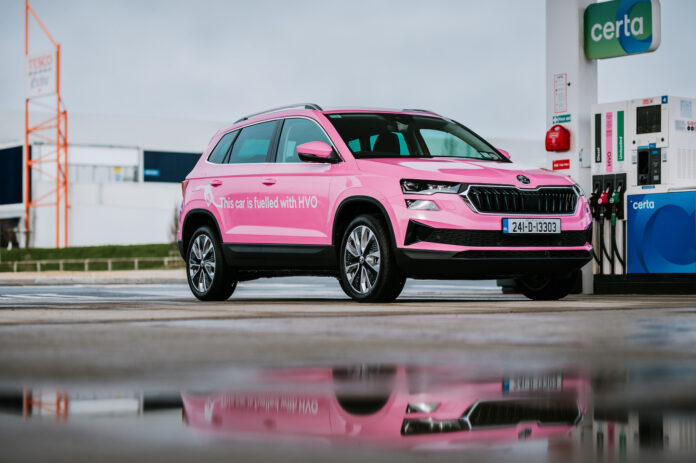18/07/2024 Diesel vehicles have a potential stay of execution (in this part of the world anyway) thanks to HVO or Hydrotreated Vegetable Oil. HVO is specially treated vegetable oil that can replace diesel fuel in modern cars and trucks without the need for any engine modifications. We’ve been driving a HVO fuelled Škoda Karoq for a week and here’s how we got on. Our diesel-engined compact SUV test car had HVO in its tank instead of diesel. Running a vehicle on used vegetable oil is nothing new but was the reserve of only dedicated followers in slightly modified cars, also the greener fuel was not freely available to the masses. Well this latest generation of alternate diesel ‘HVO’ is still not freely available to the masses but it is on sale in six Certa forecourts in Ireland. The great claim with HVO is that its use can reduce emissions by up to 90% while delivering similar fuel consumption.
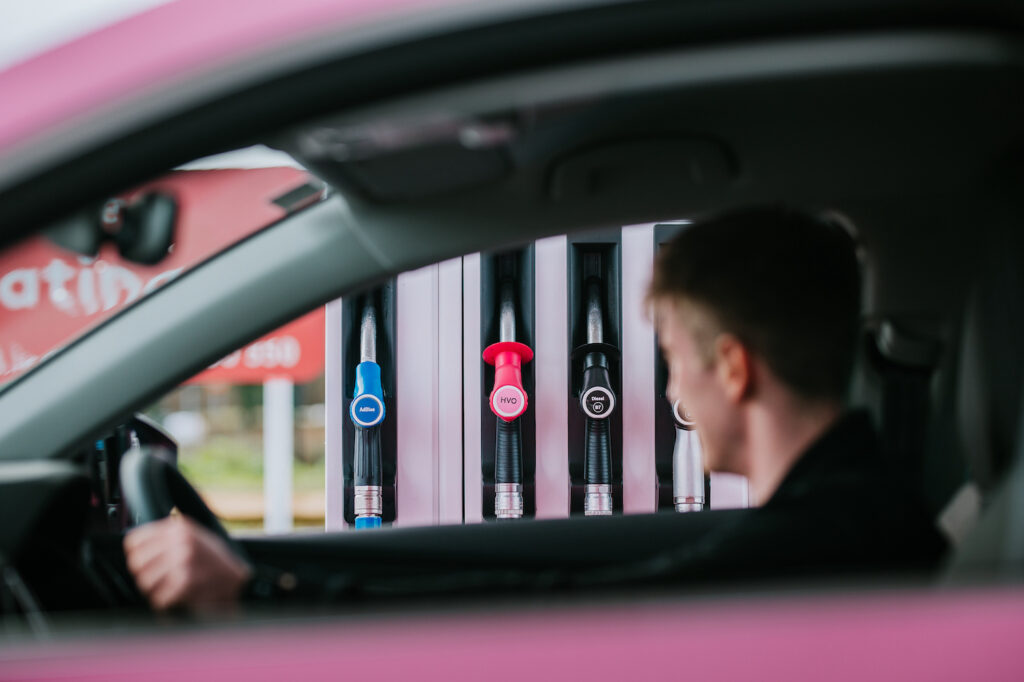
So what is HVO and why should we care? HVO’s H is the key initial – it stands for hydrotreated. It is produced using waste plant-matter and hydrogen, which means it does not release any additional carbon emissions into the atmosphere and can result in a 90% net reduction in emissions. Essentially impurities in waste vegetable oil are washed away – leaving literally cleaner oil ready for combustion. Five fast facts: 1. HVO is recognised by the Irish government as a drop-in replacement for conventional diesel with greenhouse gas reduction benefits. 2. HVO is expected to meet a large proportion of the increase in biofuel supply needed to decarbonise the transport sector in the short-term and as a transition measure. 3. HVO is odourless and is more suited to being stored than conventional diesel. 4. It offers superior cold weather performance, down to -30 degrees. 5. HVO produces less notifiable particulate matter and nitrogen oxide emissions, meaning it is better for air quality than conventional diesel. Our Škoda Karoq never missed a beat or felt underpowered. It drove without any indication it was running on a greener fuel than the one intended for it when it left the factory. We average 5 (or better) litres per 100km in fuel consumption. Diesels built in the last few years can all run on HVO – check for the label inside the fuel filler cap. There is a reduction in the amount of AdBlue used too in a diesel engine running on HVO.
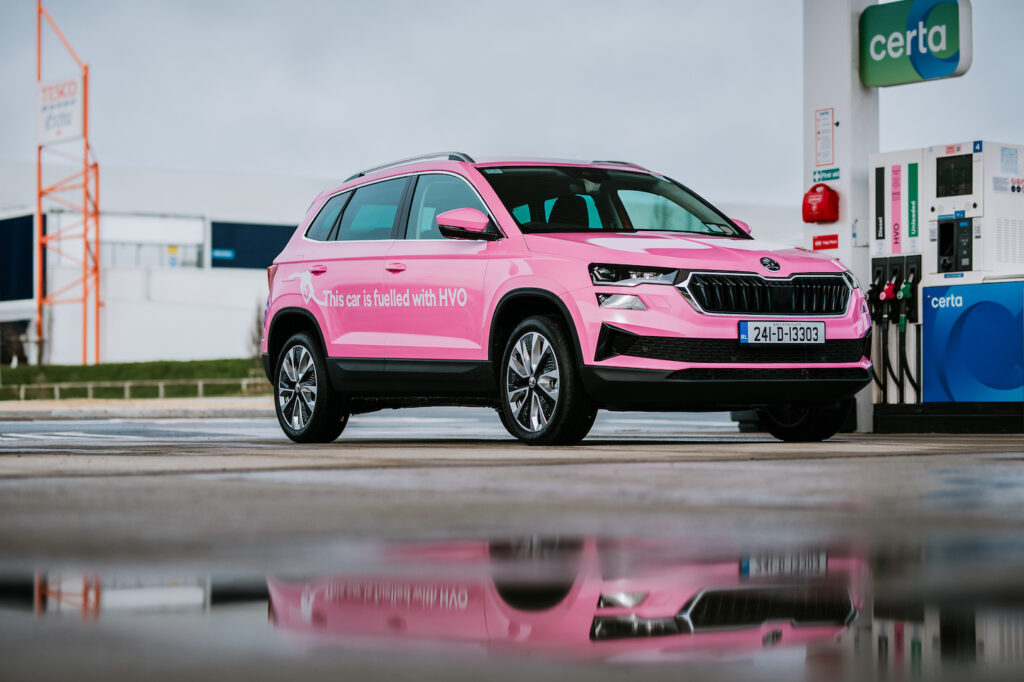
Škoda is happy to endorse the fuel. John Donegan, Brand Director at Škoda Ireland, said: “At Škoda, we recognise the importance of electric vehicles, but we also recognise that many buyers are still choosing diesel models for a variety of reasons as illustrated by recent sales figures. For these motorists, switching to HVO today can lead to an immediate and significant reduction in their emissions. We are delighted to partner with Certa on this initiative and Certa should be commended for the progress the company is making in increasing the availability of HVO in Ireland”. Ireland’s fuel retailers are starting to embracing the fuel. Orla Stevens, Managing Director of Certa said: “At Certa, our goal is to make it easy for motorists to transition to HVO as a renewable alternative to diesel. HVO’s benefits are well-established, and we believe drivers of diesel cars will switch to using HVO if they are aware of it, and are able to access it. As part of our campaign with Škoda, we announced that we are in the process of increasing the availability of HVO and we are now pleased to confirm that we have six HVO-ready forecourts with a further four coming on stream very soon. Motorists wanting to use HVO just need to look out for the pink nozzle at the pumps.”
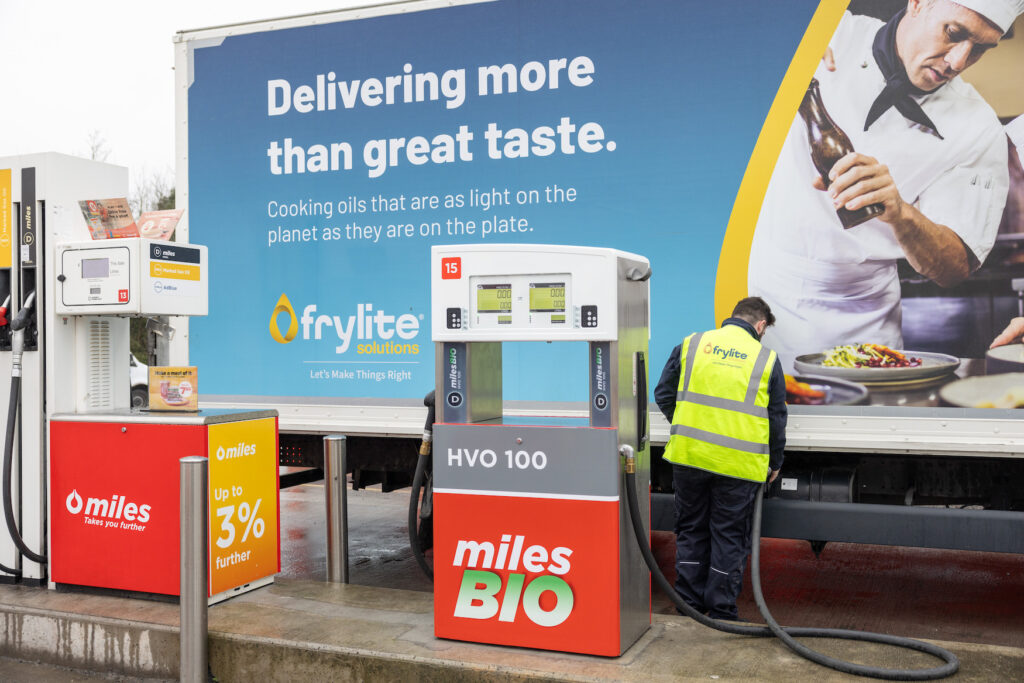
Fuel retailing giant Circle K is also raising awareness of HVO with forecourt sales and a fleet of HVO fuelled delivery lorries. Jonathan Diver, Senior Director Fuel at Circle K Ireland, said, “We are committed to supporting our business customers in their efforts to reduce carbon emissions through innovative sustainable fuel solutions. Since we introduced milesBIO HVO100 to the Irish market in 2022, we have collaborated closely with numerous commercial partners, including industry leaders like Musgrave, Stobart Logistics and, more recently, Frylite Solutions and DFDS, and we are already seeing the impact of milesBIO HVO100 on their respective operations. HVO remains a key investment priority for Circle K as we aim to expand our presence with new locations in 2024. To this end, we have allocated over €2 million this year towards both ongoing and upcoming projects, and to enhance storage facilities at our terminals. Together, we are accelerating the adoption of HVO among diesel vehicle users, contributing towards Ireland’s path to net-zero and supporting the government’s objectives to achieve a 50% reduction in transport carbon emissions by 2030.”
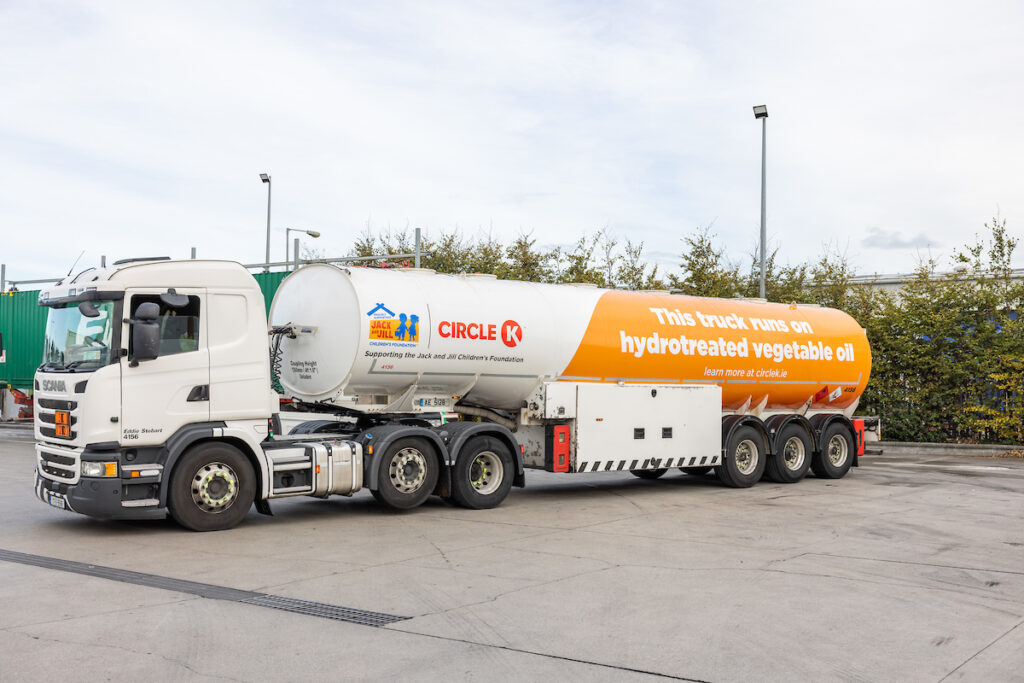
Circle K on its HVO says: ‘Circle K’s milesBIO HVO 100 is produced using the byproducts and residues of biomass cultivation processes and production processes, which results in a carbon-neutral biomass. This means milesBIO HVO100 is a fossil-free biofuel made from waste and by-products from the food industry, not intended for human consumption. On average, a litre of fossil diesel results in a total CO2 emission of approximately 3,41 kg including production, transportation, and final combustion. As HVO renewable diesel uses byproducts and residues of biomass cultivation processes and production processes, it avoids their destruction that would result in higher CO2 emissions and significant environmental impacts, meaning the net contribution of HVO can be as low as approximately 0,35 kg CO2 equivalent per litre fuel.’ Jonathan Diver, Senior Director Fuel, at Circle K Ireland, said, “HVO remains a key investment priority for Circle K as we aim to expand our presence with new locations in 2024. To this end, we have allocated over €2 million this year towards both ongoing and upcoming projects, and to enhance storage facilities at our terminals. Together, we are accelerating the adoption of HVO among diesel vehicle users, contributing towards Ireland’s path to net-zero and supporting the government’s objectives to achieve a 50% reduction in transport carbon emissions by 2030.”
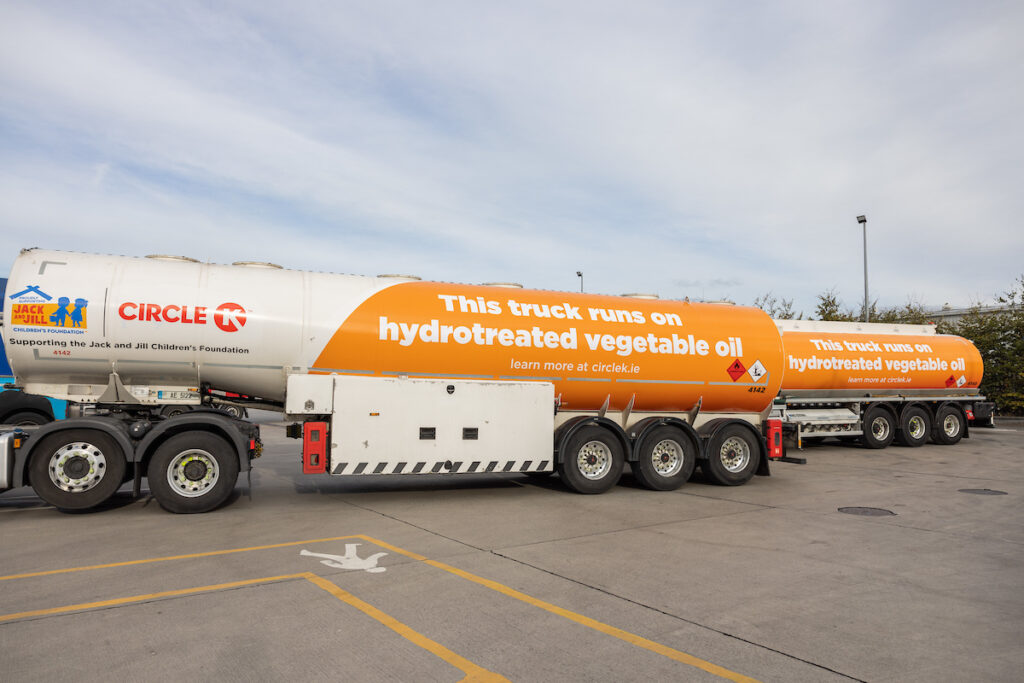
Circle K milesBIO HVO100 forecourts are located in Monaghan (town), City North on the M1 and Kill South on the M7/N7 Co. Kildare, with plans for two additional sites to be unveiled in the coming months. milesBIO HVO100 is already located at Circle K Dublin Port, Co. Dublin; Circle K Junction 8, M8, Cashel, Co. Tipperary; Circle K Junction 5, M9, Rathcrogue, Co. Carlow; and Circle K Junction 14, M8, Gortore, Fermoy, Co. Cork and Circle K Express Daly’s Lifford, Co. Donegal. Certa HVO forecourts are located in Maynooth (Kildare), Dundrum (Dublin), Ballyhaunis (Mayo), Liffey Valley (Dublin), Lee Tunnel (Cork) and Trim in county Meath. HVO costs a few cent more per litre than diesel at present but it is hoped that with greater scaling up, the price will come down. Michael Sheridan


